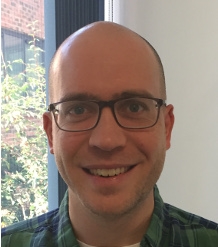
Dr Cameron Weadick
Royal Society Dorothy Hodgkin Fellow
C.Weadick@exeter.ac.uk
5158
Newman Lower Ground Floor (The Cave)
Overview
I am interested in the processes that shape biological diversity at the organismal and genetic levels. My present focus is on the consequences of relaxed natural selection—on the evolutionary fate of adaptations that are no longer critical to survival and reproduction. When environmental conditions change, mutations that alter previously adaptive traits can accumulate, and novel selection pressures that act to reshape these traits can emerge. The study of relaxed selection provides an important complement to adaptation-focussed research in the context of environmental change.
Environmental change can take many forms, including alterations to the social and demographic environment. For most familiar animals, a key aspect of their environment is the number of potential reproductive partners: males and females must find or reach one another for either to achieve any reproductive success. However, some species have abandoned this system in place of alternatives that allow for unisexual reproduction, for example self-fertile hermaphroditism. Such mating system transitions have the potential to severely relax selection on traits involved in reproduction.
I am using Pristionchus nematodes (roundworms) to explore how the evolution of self-fertile hermaphroditism affects selection on reproductive biology. Several species in this group have independently evolved self-fertile hermaphroditic mating systems; these hermaphrodites are, in effect, females that have acquired the ability to produce and use their own sperm. Reproduction via selfing rapidly causes males to become so rare that they make minimal contributions to reproduction, and it shifts the reproductive age-distribution to begin and end earlier in life. The evolution of selfing should therefore lead to severely relaxed selection on both male biology and late-life hermaphrodite biology.
My research program will explore how mating system transitions affect evolution across the Pristionchus genus using a mixture of comparative and experimental approaches. This work asks whether and how traits degenerate once selection has been relaxed (e.g., where and when does selection contribute to degeneration, and how repeatable is the process?). More broadly, this work speaks to the biology of sex differences, and the evolution of senescence and disease.
I have additional interests in the development and use of phylogenetic and molecular evolutionary methods for studying protein biology, and in exploring the natural diversity of local nematodes.
Qualifications
PhD - University of Toronto
BSc (honours) - University of Guelph
Career
2018–present - Royal Society Dorothy Hodgkin Fellow, University of Exeter
2016–2018 - Family Leave
2011–2016 - Postdoctoral Research Fellow, Max Planck Institute for Developmental Biology
Publications
No publications found



